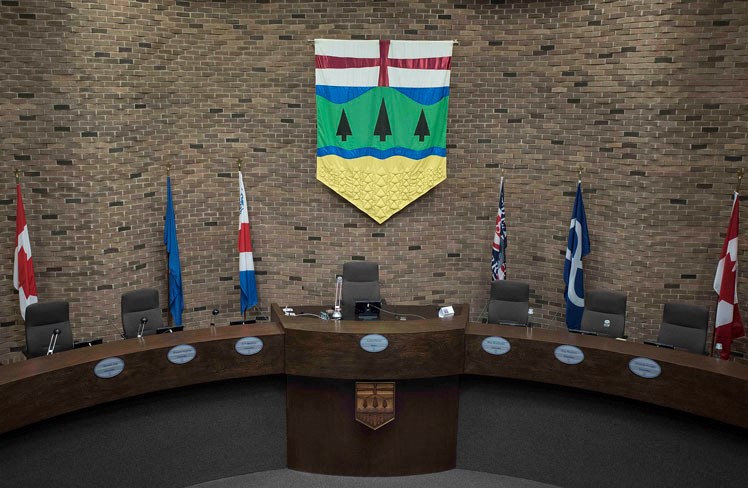St. Albert Mayor Cathy Heron was unhappy with the Government of Alberta's proposed legislation to remove municipal codes of conduct, and called it an example of the province throwing "the baby out with the bath water."
Bill 50, if passed, would eliminate council codes of conduct as a requirement for municipal councils, as well as prevent them from implementing their own locally developed codes. St. Albert's own Council Code of Conduct Bylaw was passed in August 2017, and there have been no complaints filed during this term.
As part of the legislation, the province said it would engage with municipalities on establishing common practices for councils, as well as an independent ethics commissioner to address matters involving municipal council members.
Heron said it was another example of the province listening to a few select mayors and municipal councils, and then throwing everything out instead of improving it.
"If you have a bunch of councillors promising to abide by a certain set of values, that's a good thing. No one asked for this," Heron said.
"My worry here is that you're throwing something out without first having a solid replacement or an understanding of what the new process would be," Coun. Ken MacKay said.
Heron agreed, and said the gap is nerve-wracking, especially going into an election year.
Mayor of Wetaskawin and Alberta Municipalities president Tyler Gandam, also shares a fear of the gap created between the removal of codes of conduct and the implementation of whatever the province develops, although he was pleased to hear there would be something developed.
"Instead of 330 different codes of conduct happening throughout the province and each of the municipalities, we're going to be able to have one that hopefully will address all of the concerns that councils have, or at least the majority of them," Gandam said. "It takes the ambiguity away from it, where there might be different interpretations of a sanction or might be different interpretations of a code of conduct."
Heron thinks the variance will make it more difficult to come up with a set of rules that works provincewide.
"There's a big difference between a summer village with three councillors and one city manager, compared to Edmonton," she said. However, she acknowledged having an independent ethics commissioner would take the burden off of a town manager or a city's chief administrative officer, as well as avoid the uncomfortable scenario of potentially being required to adjudicate their boss.
Part of the province's reasoning for getting rid of codes of conduct is the potential for them to be weaponized against councillors, whether by other council members or residents. MacKay said he understands the worry, as does Coun. Sheena Hughes.
"If an individual were to put forward a complaint on something you did, regardless of whether or not it was a violation of code of conduct, then it goes through a whole process. And so it can be used as a weapon," Hughes said.
She added the introduction of an independent ethics commissioner would allow complaints that don't merit investigations to be thrown out quickly. It would also remove some of the tension between councillors when a code of conduct violation does take place and an investigation is required, she said.
"The way it's done right now, it just creates tension on council. It's a very difficult position to be put in when you're asked to evaluate your peers that you now have to continue to work with, and determine what, if any, punishment should occur," she said. She and Heron also pointed out that the actual sanctions council can impose are limited.
St. Albert's Code of Conduct Bylaw states councillors are unable to remove a member from office. Only a court of competent jurisdiction or the municipal affairs minister can do that. Some of the sanctions that council members may impose include a demand for a public apology, removal from membership of a committee, and public reprimand through a motion of censure, among others.
When asked about possible overreach by the province, MacKay said it would depend on what action is allowed to be taken by the independent ethics commissioner, and when they get involved.
"I would welcome a third party if it was serious, and then it takes it right out of council and administration's hands," he said. "But at the same time, is there a risk of flooding the integrity's office with vexatious or frivolous complaints?"
Heron said she constantly worries about overreach with the provincial government, and killing all codes of conduct is just another to the list.
"For example you can make code of conducts not mandatory. Kill them all, but allow those of us who want to abide by a common set of values the right to do that," she said. "But they're not allowing even that. So that's an overreach, by telling me what I can do and how I can control my council."
Gandam said it will be crucial for the province to engage in consultation and receive feedback from municipalities in order to alleviate the potential consequences or overreach.
"I think that it's really important that it's still borne with the municipality or with that council, and making sure they have oversight into what those sanctions are going to look like for that individual member of council, being that they work with each other far more often than an ethics commissioner would," he said.
The Gazette reached out to the municipal affairs minister's office for comment, but did not hear back by press time.



